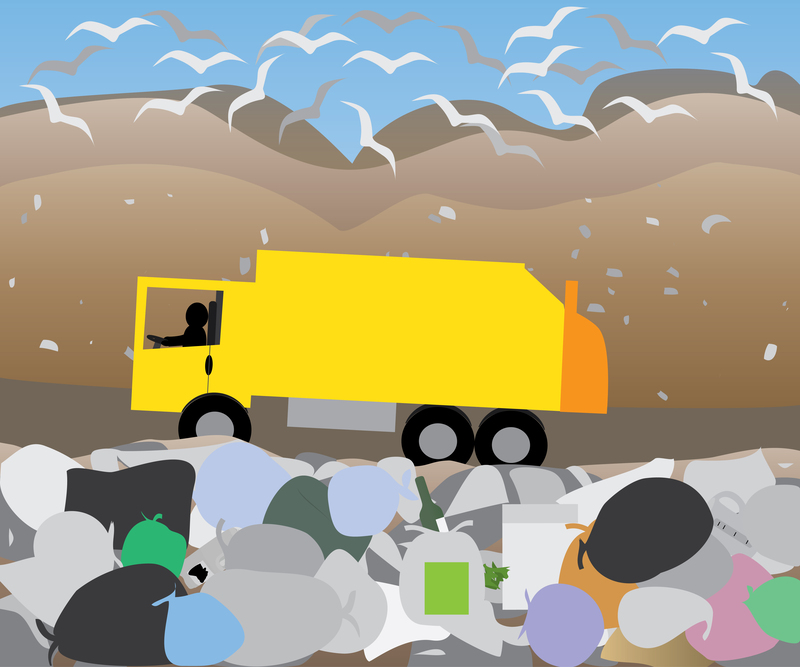Don't Overpay--Smart Tips for Saving Money on Bulky Waste Items
If you've ever faced the challenge of getting rid of bulky waste, you know it's not just about clearing out space--it can be a hit to your wallet too. The good news is, with a few strategic moves, you can manage your bulky items without breaking the bank.
This comprehensive guide will walk you through actionable tips for saving money on bulky waste removal, from understanding the types of bulky items to choosing the most affordable disposal solutions in your area. Whether you're clearing an attic, moving homes, or simply updating your furniture, these expert insights will help you avoid unnecessary expenses on bulky waste disposal.

What Are Bulky Waste Items?
Bulky waste items refer to possessions that are too large for regular trash collection. Common examples include:
- Furniture: Sofas, mattresses, wardrobes, tables, chairs, etc.
- Large Appliances: Fridges, washing machines, dryers, stoves, freezers, dishwashers, etc.
- Electronics: Large TVs, monitors, home theater systems, etc.
- Outdoor Items: Grills, lawn mowers, swing sets, trampolines, patio furniture.
Disposing of these items can be hassle-free or costly, depending on the method you choose. Let's look at ways to avoid overpaying when it comes to bulky waste disposal costs.
Why Is Bulky Waste Removal So Expensive?
Bulky waste removal often involves special equipment, extra manpower, and consideration of landfill or recycling regulations. Here are some reasons for the higher cost:
- Transportation: Bulky items often require a truck or special vehicle.
- Labor: Additional workers may be needed to move heavy items safely.
- Landfill Fees: Most landfills charge by weight or by item for bulky waste.
- Environmental Regulations: Certain items, especially electronics and appliances, require special recycling or disposal methods.
Knowing these cost factors can help you understand where you can cut corners and save money on your bulky item pickups.
Smart Tips for Saving Money on Bulky Waste Items
1. Explore Your Local Municipality's Services
Many cities and towns offer periodic bulky item pickup services as part of your regular waste collection.
- Check Your Schedule: Some municipalities provide free pickups once or twice a year. Take advantage of these if your timing matches.
- Register in Advance: Often, you must schedule and register the items you want collected.
- Read the Guidelines: There may be limits on how many items or the types of items accepted.
Tip: Avoid leaving items curbside until the scheduled pickup to prevent fines or neighbor complaints.
2. Reuse, Donate, or Sell Whenever Possible
Bulky waste reduction starts with considering if the item is still usable. Why pay to throw away something you can donate or sell for cash?
- Donation Centers: Charities like Goodwill, Salvation Army, or local shelters often accept furniture and appliances in good condition.
- Online Marketplaces: Use Craigslist, Facebook Marketplace, and other community boards to give away or sell bulky items. Many buyers will even pick up the items themselves, sparing you removal costs.
- Repurpose Items: Get creative! Old furniture can be refurbished or upcycled for new uses in your home.
3. Compare Bulky Waste Pickup Services
If you need a professional haul-away, shop around. Bulky waste collection pricing can vary significantly.
- Request Multiple Quotes: Get estimates from different local waste companies or junk removal services.
- Check for Hidden Fees: Ensure quotes include labor, taxes, disposal, and any surcharges. Avoid surprises!
- Negotiate: Don't be afraid to ask for discounts, especially if you're a repeat customer or have multiple items.
4. Rent a Dumpster--But Share the Cost
Renting a dumpster can be a cost-effective choice for major clear-outs:
- Split the cost with neighbors or family doing their own decluttering.
- Fill the dumpster as much as possible to maximize value.
- Choose the right size to avoid paying for unused space or overweight fees.
Ask about weight limits and item restrictions before booking a dumpster rental.
5. DIY Transport to Recycling Centers or Landfills
If you have access to a truck or trailer, consider taking items directly to a recycling center or landfill.
- Check Fees: Some centers charge a small fee per item or by weight, but this is frequently less than commercial pickup.
- Know Their Policies: Not all centers accept every type of bulky item, especially electronics or hazardous material.
DIY drop-off not only saves money but allows you to ensure items are disposed of responsibly.
6. Dismantle Items for Easier Removal
The less space an item takes, the less it costs to dispose of. Break down large furniture or appliances if possible.
- Remove legs, shelves, doors, or drawers.
- Tie or bundle large pieces for easier handling.
- Recycle scrap parts when you can.
Important: Wear proper safety gear and follow instructions when taking apart items, especially those with glass, sharp edges, or electrical components.
7. Leverage Free Local Events
Many municipalities and non-profits hold "bulk pickup" or recycling events for residents to drop off large waste for free or at reduced rates.
- Keep an eye on local government announcements, newsletters, or community boards to stay notified.
- Plan your cleanout around these annual or semi-annual events to maximize savings.
8. Avoid Fines and Illegal Dumping
Trying to save money through illegal dumping can backfire, as fines are often several times higher than proper disposal fees. It also harms the environment.
- Always check with your city or county for legal dumping options.
- Follow all posted guidelines to avoid paying more in the long run.
How to Identify the Most Cost-Effective Method for Your Bulky Waste Disposal
No two clear-out jobs are the same. The best budget-friendly bulky waste disposal method depends on your specific situation. Here's how to decide:
Step 1: Make an Inventory
List all the items you want to remove. Note their size, weight, and condition. Group by what can be donated, sold, or must be trashed.
Step 2: Research All Local Options
Compare free municipal services, donation centers, private haulers, and landfill rates. Remember some charities offer free pickup for donations!
Step 3: Compare Costs and Convenience
- DIY Drop-off: Best for those with a vehicle and a manageable number of items.
- Bulk Pickup: Great if your city offers periodic curbside pickups.
- Junk Removal: The fastest, but typically the priciest for convenience.
- Dumpster Rental: Best for large-scale projects when costs can be shared.
Step 4: Schedule or List Items
Once you decide, book your pickup, rental, or drop-off. Post items for sale or donation as soon as possible to clear them before any deadlines.
Common Mistakes That Cost Extra on Bulky Waste Removal
- Waiting Until the Last Minute: Urgent removal often comes with rush fees. Plan ahead!
- Not Sorting Items: Mixing hazardous items (like paint or electronics) with regular bulk waste can incur surcharges.
- Overlooking Free Options: Failing to check for local free pickup events can mean unnecessary expenses.
- Poor Communication with Haulers: Not relaying the full size and scope of your items can lead to inaccurate quotes.
- Ignoring Local Regulations: You could face fines for putting items out on the wrong date or in the wrong location.
Frequently Asked Questions About Bulky Waste Savings
How can I dispose of a bulky item for free?
- Check for annual or biannual bulky waste collection events in your area.
- Donate usable items to local charities with free pickup services.
- Offer unwanted furniture or appliances on local "buy nothing" groups or marketplaces for free.
Is it cheaper to rent a dumpster or hire a junk removal service?
Dumpster rentals tend to be less expensive if you have a large amount of waste and can fill the unit efficiently--especially if you split the cost. Junk removal services offer convenience and labor, but may charge more, particularly for single items or small loads. Always compare quotes to find the best deal.
Can I leave bulky items at the curb for regular trash collection?
Check your municipal guidelines. Many cities require advance registration or only accept certain items curbside. Improper curbside disposal can result in fines or your items being left behind.
How do I know if my bulky item is recyclable?
Contact your local recycling center or waste hauler for a list of acceptable items. Appliances, electronics, and metals are often recyclable, while mattresses and composite furniture may not be. Always ask to ensure responsible disposal.

Keys to Saving Money on Bulky Waste Items
- Plan ahead--Waiting increases costs and stress.
- Reuse, recycle, donate, or sell before opting for landfill.
- Compare multiple disposal options to find the best price and convenience.
- Take advantage of community resources, such as free pickup days or charity pickups.
- Be safe--Disassemble and prepare items to streamline removal and avoid injury.
- Follow your local laws and guidelines to avoid costly fines.
Final Thoughts: Be Smart and Save Big on Bulky Waste Removal
Managing bulky waste doesn't have to drain your budget. By understanding the available options and planning ahead, you can save money on bulky item disposal and even help your community by donating or recycling. The next time you're faced with a pile of unwanted furniture or appliances, remember these smart, simple tips to keep your home--and your wallet--clutter-free.
Ready to get started? Research your local options today, and remember: the smartest move is always the most informed one.
